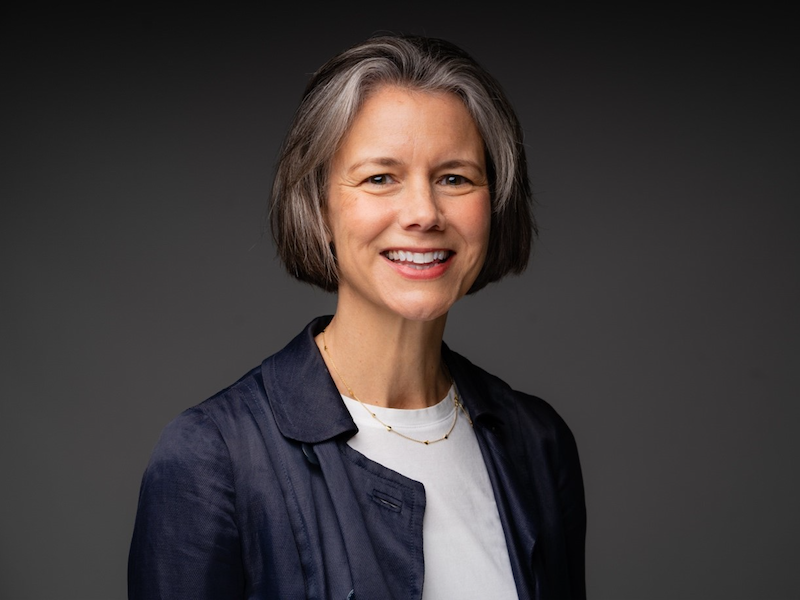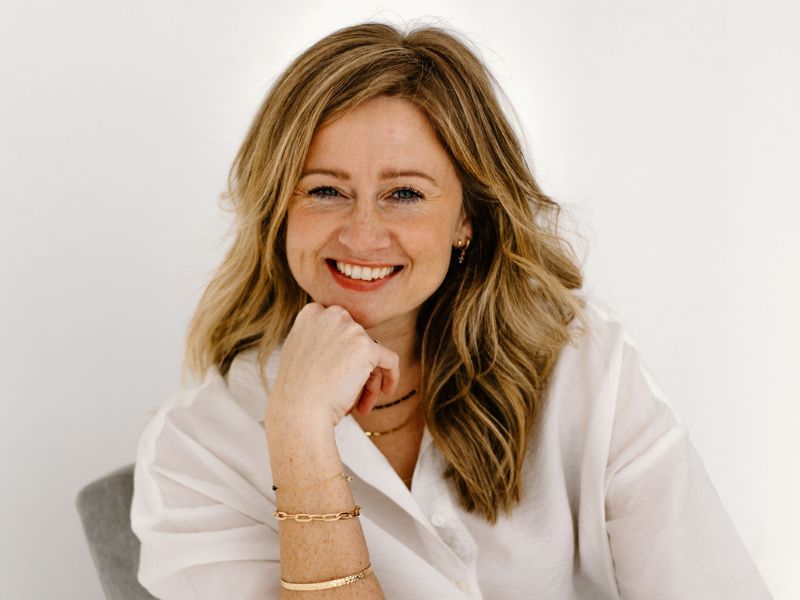
Annie Gallimore is the Managing Director of ACNE London, steering the ship since June 2021. She joined us from ENGINE, where she held the position of managing director of the agency’s creative pillar.
Annie began her advertising career as an account director at Abbott Mead Vickers, helping create award winning work for Guinness and Dulux. She has worked both client and agency side of the industry leading multi-award-winning integrated campaigns for multiple organisations, including large international brands (Sky, MoneySuperMarket, Cazoo) and public sector bodies, such NHS Blood & Transplant where she led the team on Missing Type, the most awarded creative work of 2017.
Prior to her role as managing director at ENGINE, Annie held leadership positions at Grey London as managing partner, where she worked on the much applauded, and awarded, Vinnie Jones work for the British Heart Foundation. Client side, Annie was head of marketing at Waterstones, launching their website and loyalty scheme, building up significant retail expertise.
Annie sits on the IPA Council and recently completed a two-year tenure as chair for the Talent Leadership Group at the IPA, which focuses on diversity and representation in our industry. She is also a member of WACL and was acknowledged in this year’s Campaign’s 40 over 40 list.
Tell us a bit about yourself, background and your current role?
As a farmer’s daughter from rural Herefordshire, I moved to London and joined Leo Burnett as a graduate. I then joined Abbott Mead Vickers BBDO where I helped create award-winning work for Guinness, including ‘Surfer’, before moving client-side to become Waterstones’ Head of Marketing, launching their website and loyalty scheme
I jumped back into agencies and joined Grey London, part of WPP. The British Heart Foundation campaign ‘Stayin’ Alive’ with Vinnie Jones, became a career highlight. I then moved to the Engine Group to run its Government Framework and became Managing Director. Two years ago, I joined Deloitte to lead and grow Deloitte Digital’s creative agency, ACNE, as well as integrate its overall creative offering into its wider remit of data, tech and operations.
Did you ever sit down and plan your career?
I didn’t plan it as such, but I was very conscious I needed to succeed, financially and emotionally. I was accepted to Edinburgh to study Fine Art, but was never sure I would be good enough to make a living from art after graduating. I therefore decided to study history instead, as a subject I love, but also giving me the means to open up more career avenues.
I had always been interested in advertising and the way it connected through emotions to persuade people to buy, or to change their behaviour in some way; maybe it was the terrifying public safety films of the 1980s which did that! Whilst at Bristol University I applied for the advertising agency graduate schemes and was accepted onto the Leo Burnett one.
Have you faced any challenges along the way?
Who hasn’t faced a challenge along the way? Perhaps the biggest challenges, and the greatest joys of working, are the people. We are all so different; we have our own perspectives, and we all come with our own emotions and challenges, our own backgrounds and experiences, and that is what helps make up a diverse pool of talent, which I love.
What has been your biggest achievement to date?
I’m so lucky to have worked with and for so many incredible brands in my career and made some extraordinary work I’m truly proud of and which stands the test of time, such as Guinness Surfer. But it was the launch of the Waterstones loyalty scheme which really stands out; I was so out of my comfort zone, but knew this could actively work. And it did.
What one thing do you believe has been a major factor in you achieving success?
Resilience – being able to pick oneself up and persevere is a much needed quality when striving for success, and it is not something which comes naturally for me; I have had to learn it. Also, having children; it has put more fire in my belly than I ever thought possible. It has given me more drive, more desire to succeed, not only to provide for them, but also to inspire them (both boys). I grew up with a mum who didn’t go out to work, and I could tell, even at a young age, how frustrated she was at this. I was determined to not be that mum. Having children also gives you a sense of healthy perspective during a trying day.
How do you feel about mentoring? Have you mentored anyone or are you someone’s mentee?
Mentoring is an incredibly important part of a leadership role. Being able to support up-and-coming talent by sharing my own experiences to help another, whilst also offering advice, is something that I’ve always found rewarding. I’m a WACL Mentor and I also regularly find myself mentoring people on a more informal basis too. I have benefited from mentoring in my career, having worked for some incredible people who have truly inspired me.
If you could give one piece of advice to your younger self what would it be?
Don’t sweat the small stuff.
What is your next challenge and what are you hoping to achieve in the future?
Continuing to navigate the world of creativity and consultancy. Although creative agencies and consultancies don’t appear, on the surface, natural bedfellows, when the two complement each other, their power is unparalleled. I continue to educate the industry and clients that they can solve problems by unlocking this powerful combination of creativity and business insight, but we have only just started; there is so much untapped power here for the future of brands.
What are some of the challenges and opportunities facing women in creative and leadership roles?
The challenge lies in combating persistent gender biases and fostering an inclusive culture. As a member of WACL, whose mission is to ensure 50% of all of the communications industry’s CEOs are women, I feel passionately about how key it is to break down these challenges. However, these obstacles unveil opportunities for innovation, as diverse perspectives in thinking fuel creativity. The rise of women in leadership fosters mentorship networks, amplifying the collective strength. The challenge is transforming this into a catalyst for change, heralding an era where women not only lead, but actively redefine the narrative, meaning creativity can thrive.
How can women overcome the barriers to success in these fields?
Speaking up, having perseverance, advocating for recognition, creating supportive environments which champion diversity and inclusion, and of course, leading by example.
What are some of the best practices for organisations to support and promote women in creative and leadership roles?
Companies could and should offer fair and competitive parental leave benefits; they should ensure pay equity; offer training and development opportunities, and allow for flexible working. I am pleased to say my employer does all of this. It’s also incredibly important to be able to see women in leadership roles, and particularly more senior ones. If you can’t see it, how can you be it?
How can we create a more inclusive and equitable workplace for everyone in the creative and leadership industries?
Similar to some of the reasons mentioned above, we need to keep pushing the agenda forwards through choiceful hiring. Diverse hiring creates diverse hiring. Inclusive policies and regular training should be mandatory and diversity should be obviously celebrated. We know from the recent BlackRock study which shows that gender balanced businesses out perform businesses that aren’t, how crucial, and frankly, a no brainer, this is.
What is the role of allyship in promoting DEI in the creative and leadership industries?
When surrounded by allies, individuals, regardless of their background or identity, feel a sense of comfort and understanding. Allyship goes beyond shared characteristics; it involves support from individuals who may not share the same experiences but actively work to understand and advocate for others. In the creative industry, where innovation flourishes through diverse perspectives, allyship becomes a catalyst for unlocking the full potential of talent, with research supporting this. And quite simply, how can you market to a diverse audience when those who are coming up with the ideas for that audience to purchase or change behaviour, don’t reflect that market?
Find out more about ACNE and the work they do here.
Read more from our inspirational women here.








